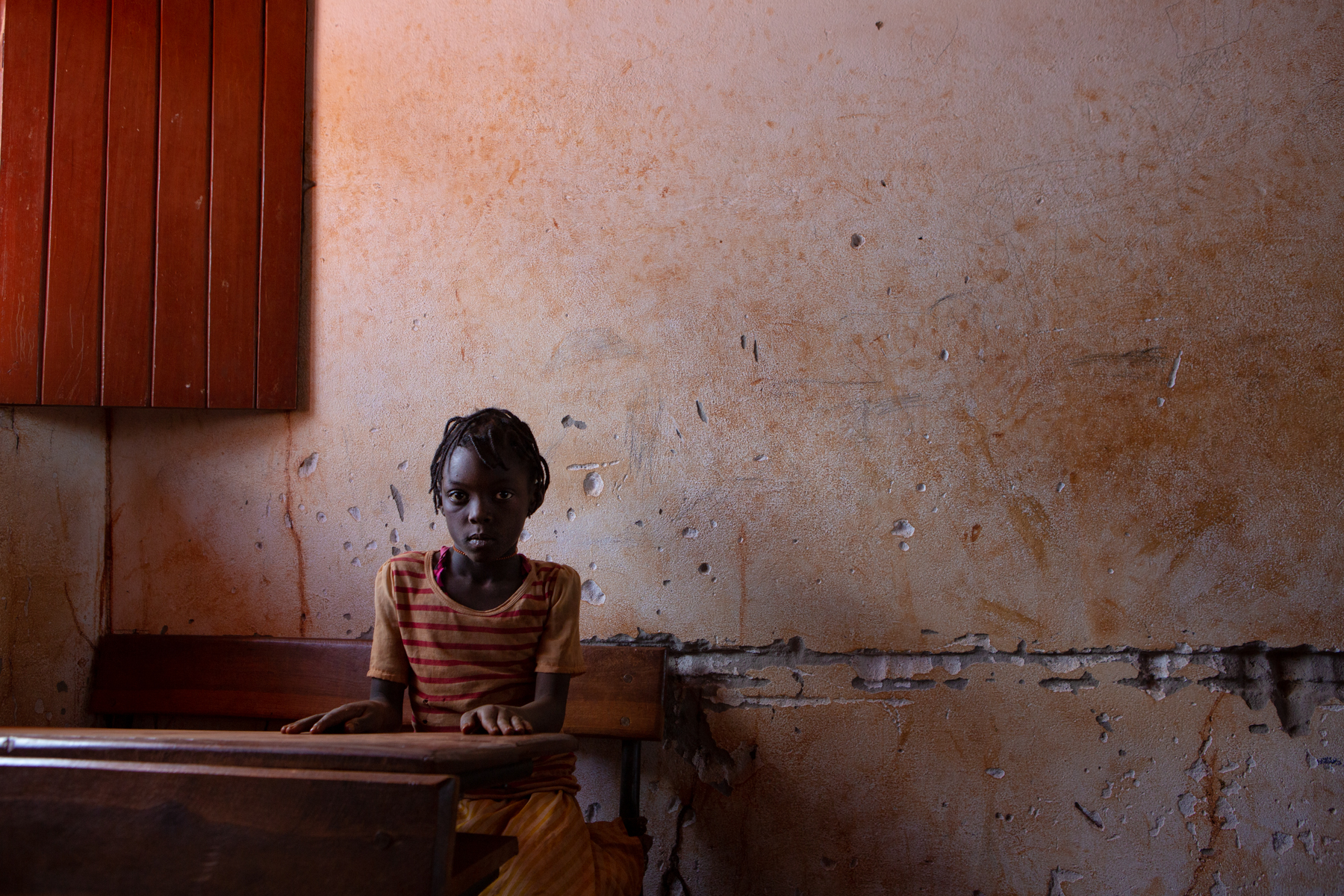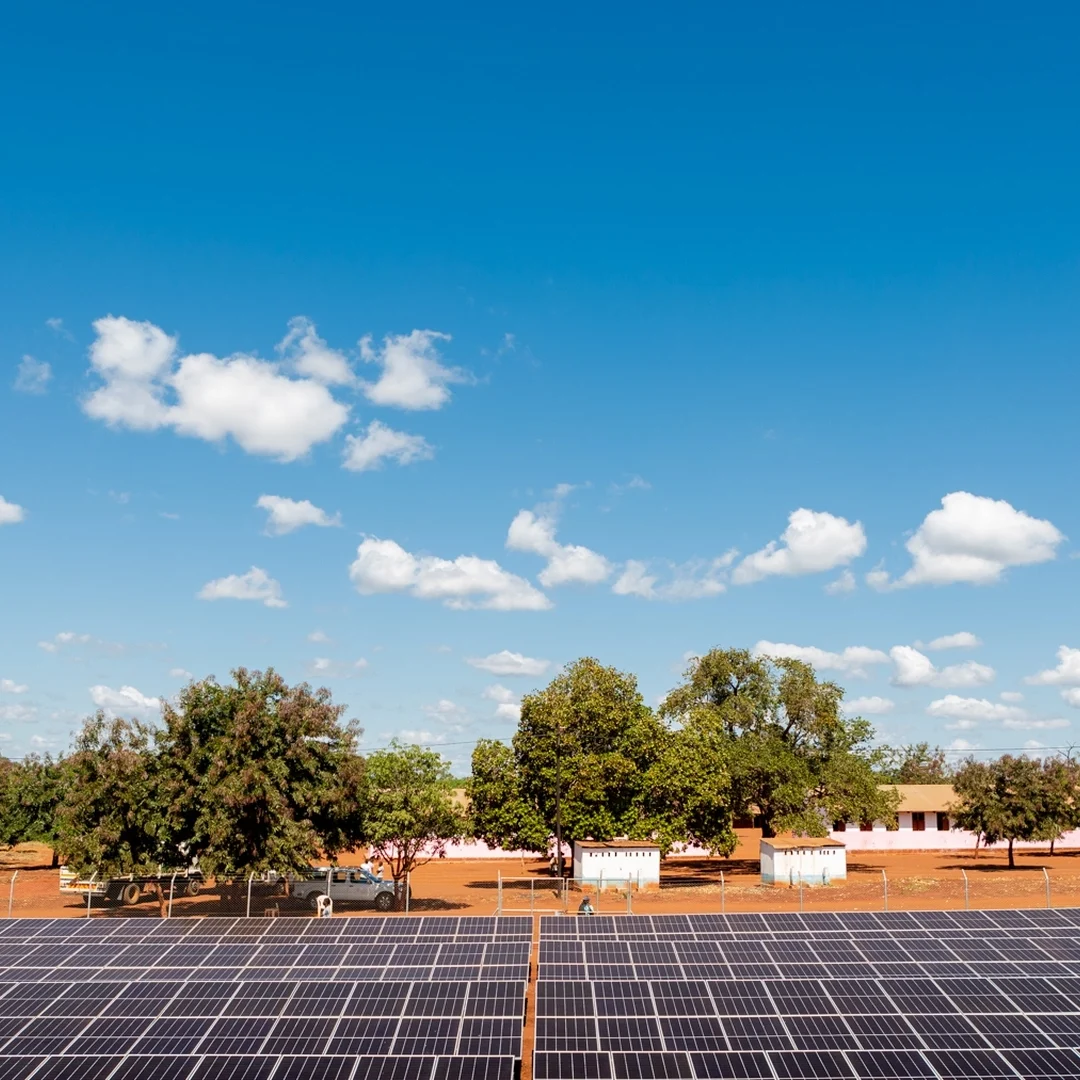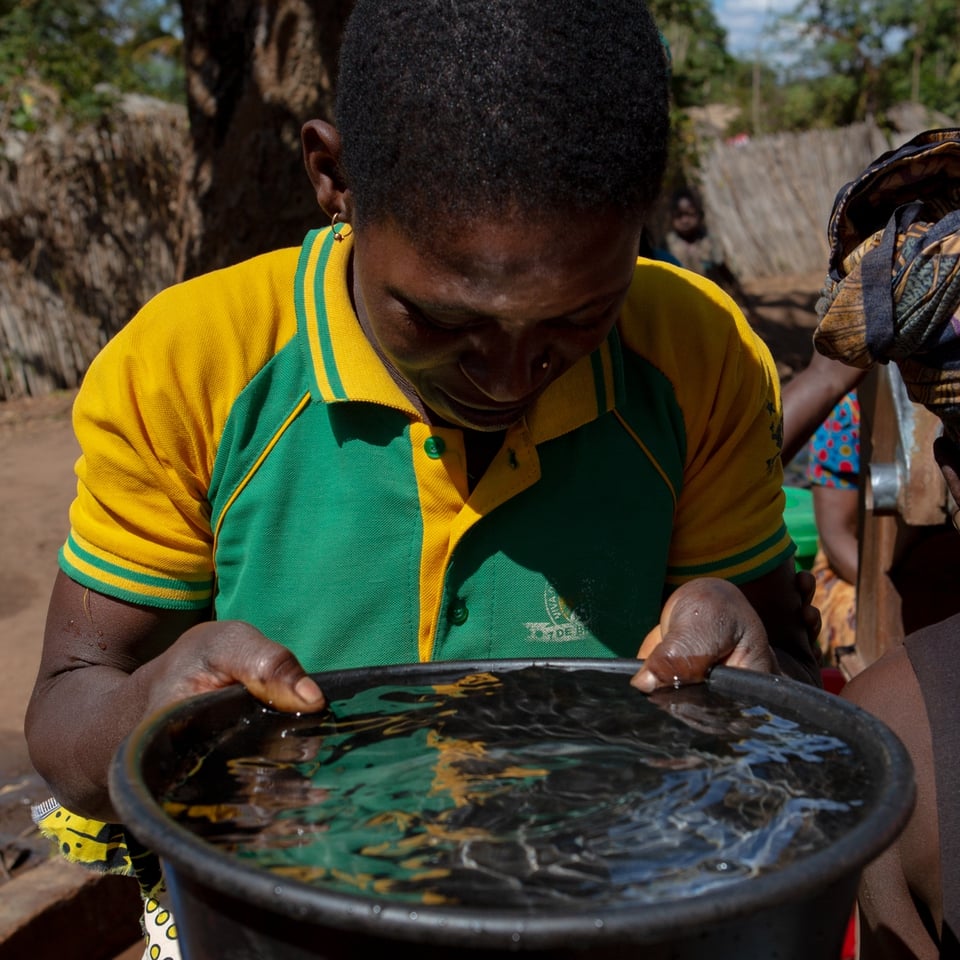Mozambique is less known compared to other African countries. Its history has been marked by the Portuguese colonization. The country gained its independence in 1975, following a war, and it had to pay a heavy price for it due to the deep financial recession that affects it to this day, making it one of the poorest countries in the world. Nevertheless, nowadays Mozambique has turned into a vibrant place where politics and economy are going through epochal change.
On the one hand, large deposits of natural resources, on the other hand, a tense relationship between the government and the opposition: for these reasons, talking about Mozambique is increasingly necessary. Despite the few flights connecting it with the rest of the world, the lack of essential services, the practically non-existent tourism across the whole country, in a few years the former Portuguese colony could become the world's third producer of natural gas.
The Ilumina project in M'paca, Mozambique
In most cases, a journey in Mozambique starts in the capital - Maputo: a chaotic city that features modern palaces, abandoned buildings and colonial villas. Beyond the residential center lies a poor, neglected suburb like that of many large African cities, suspended between past and future, poverty and improvised wealth with little to visit, if only because of the lack of essential services such as access to electricity.
The United Nations' Agenda 2030 dedicates Sustainable Development Goal (SDG) number 7 specifically to the need to ensure access to affordable, reliable, sustainable and modern energy services for all. But with just under a decade to go before the deadline set for the Goals, it is estimated that only 5% of the Mozambican population living in rural areas has access to electricity. And it is precisely in one of these places that the Ilumina project has been developed, thanks to funding provided by the Italian Agency for Development Cooperation (AICS) and the work of AVSI and COVS.

One of the project sections contributes to improve access to clean energy in the M'Paca community. From the capital, you need to take a domestic flight to Pemba to reach the northern part of the country, then travel by car for about five hours towards Balama, in the Cabo Delgado province. Afterwards, you'll need to drive another hour and a half through a road full of potholes, as big as craters, forcing even the most modern pickups to a slow and careful pace that will leave behind a huge cloud of red soil dust to welcome other large off-road vehicles or small motorcycles loaded with charcoal. An estimated one-third of deaths in Mozambique are caused by household poisonings from fumes produced by traditional cooking techniques.
Renewable energy for the benefit of the community
Past a graphite mine operated by an Australian company and an artificial lake that has as its tributary a branch of the Montepuez River, only a sign in the midst of dense vegetation points out that we are entering the village of M’Paca, where upon arrival you are immediately greeted by the two most useful and functional infrastructures in this Mozambican suburb: a photovoltaic mini-grid on the right, and the school buildings on the left. The Ilumina project intends in fact to foster the use of renewable energy in the domestic, public and productive spheres with specific focus on women empowerment, by bringing electricity to as many as 460 households and businesses, and reaching all 1,000 households between mini-grids, solar home systems and improved stoves. This renewable energy project includes the implementation of a photovoltaic system with a maximum capacity of 115kW, supported by a backup battery network and an emergency diesel generator.
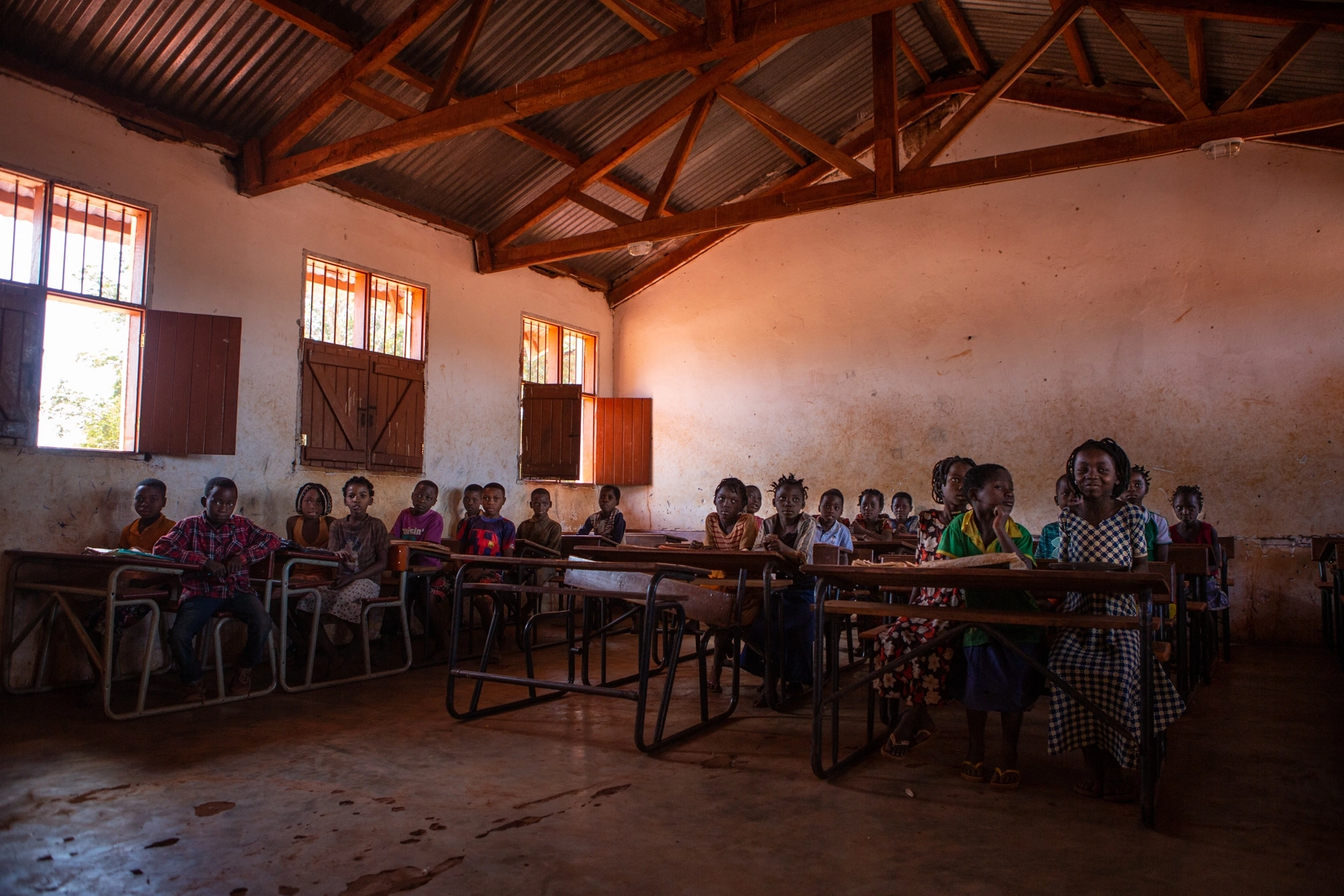
From cinema to evening classes: new opportunities for young people
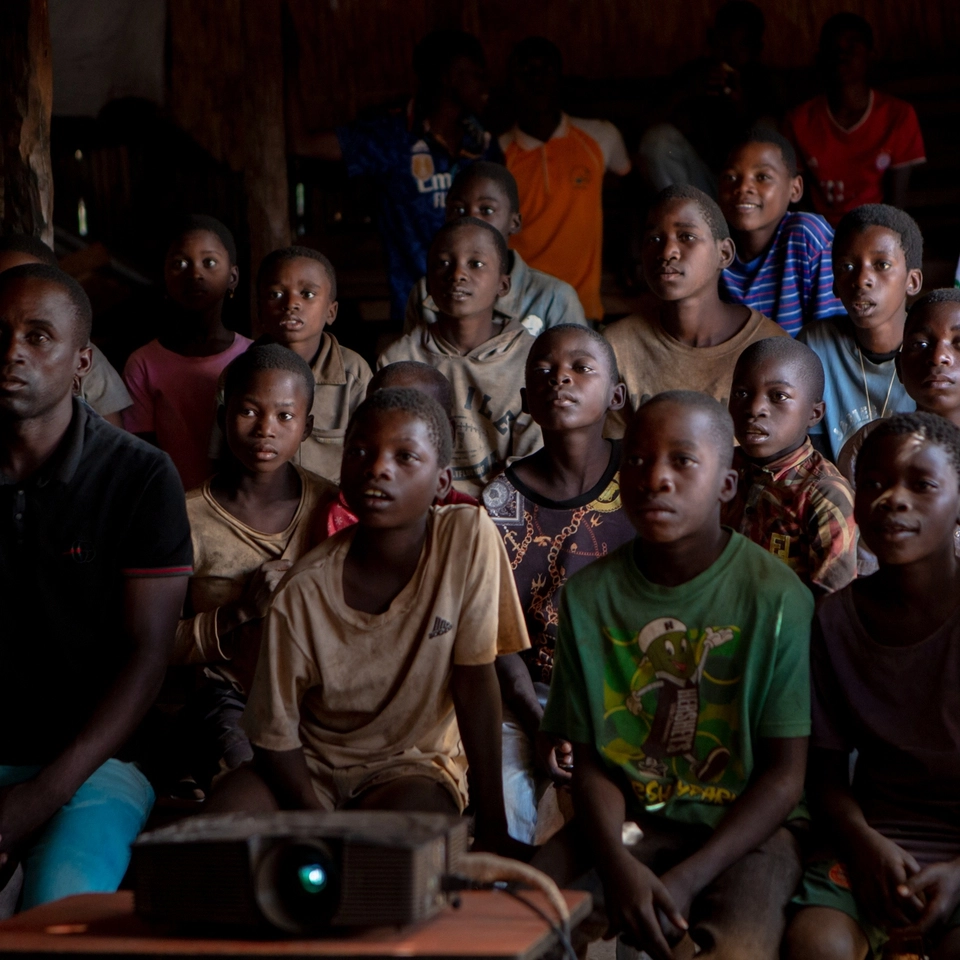
Energy is therefore distributed in exchange for a monthly fee that covers maintenance costs and aims at avoiding welfarism. Every family receives a kit consisting of a small electrical panel, an outlet, and a light point. The goal is for the project, beyond the construction of the facility, to succeed in triggering a cycle of development and economic sustainability through the dissemination, in addition to electricity, of appliances such as refrigerators, welders, carpentry machines, and drills. Electricity also brings with it a sense of civic and social responsibility. As a matter of fact, the village of M'Paca witnessed the creation of its very first cinema. From the makeshift bleachers, made of dusty wooden benches, many eager eyes follow the projector beam that illuminates a white-painted wall where a faded image keeps kids and others glued to the screen as they gather to watch movies and soccer games. Access to energy allows many families to improve their living conditions and experience future prospects for development, such as taking advantage of increased hours at school through evening classes and the possibility to keep studying at home even at night.
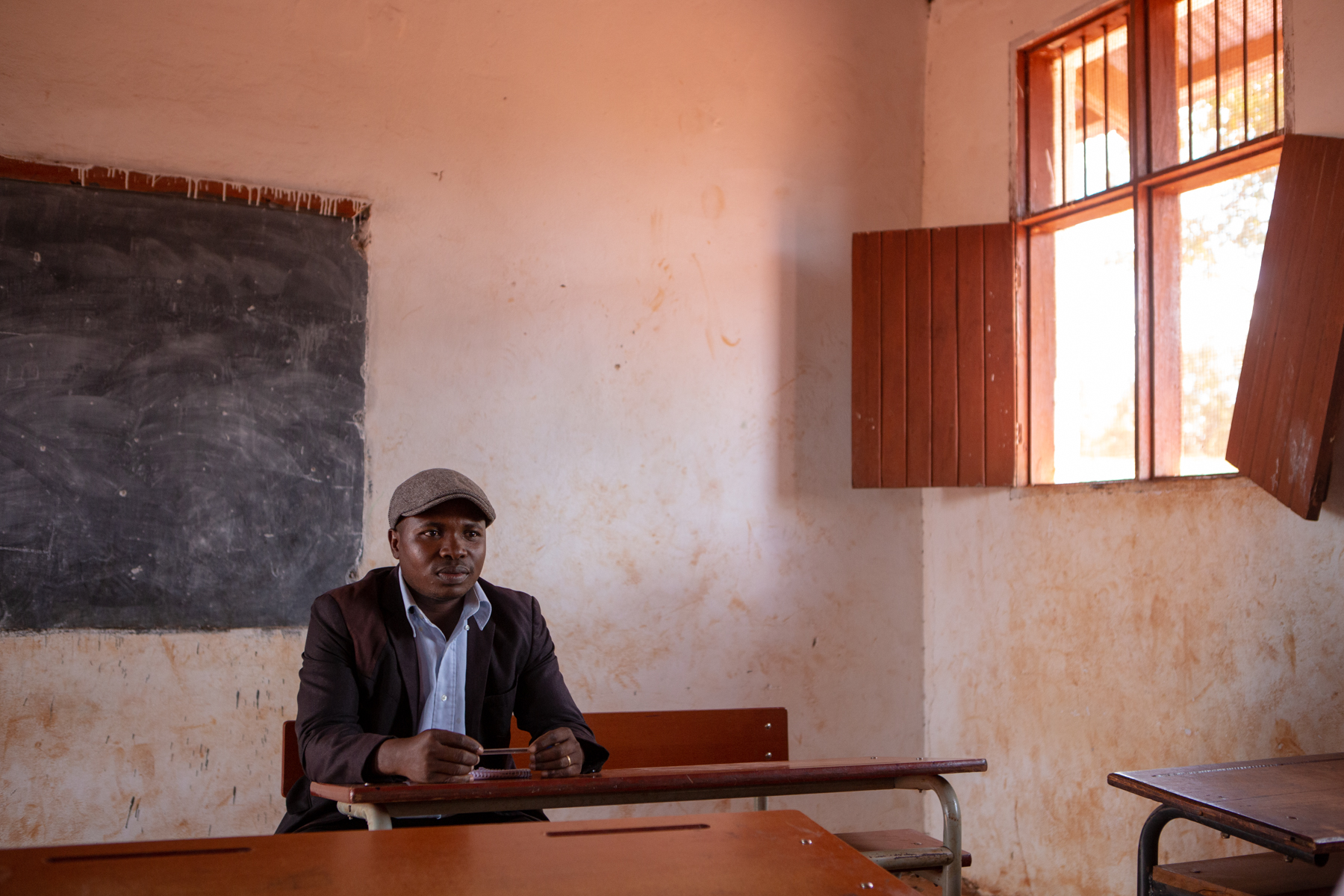
M'Paca's school principal, Deocleciano Rachide, is very pleased with the results achieved in these first years of development, "The effects have been very positive, because before we had electricity, we could not hold evening classes at school. This will facilitate the implementation of more classes for the coming years. Many youngsters and people from the village dropped out of school for various reasons, but this will encourage more people to continue their studies, as evening classes can be attended also by working people." Rachide is very proud of his work as principal, and as he adjusts his blue shirt and the cap on his head, he continues:
This means having a vision for the future. And I want to say to all the people of M'Paca that it is essential to create perspectives for the future, starting from scratch, as I did living here.
Deocleciano Rachide, M’Paca school principal
Leaving the school behind and walking through the village, it is striking to notice how women contribute the most in making this place full of life, through tangible micro-economy activities. Every action carried out through the Ilumina program strives to maximize the creation of opportunities for local women entrepreneurs through financial and digital inclusion, improved production, as well as the enhancement of social and educational services that open up spaces for autonomy and empowerment - such as daycare centers, women's rights support and advocacy centers, community and training centers, workshops, leadership courses, active citizenship, and more. The project also identified a number of women to whom refrigerators and freezers were delivered, as part of a micro-credit project in Mozambique that supports the establishment of small stores where they can sell fresh food and drinks. One of the beneficiaries is Muamini Assane, a 46-year-old woman who unwraps the items she received as if they were a unique and precious gift.
Finally we have electricity here in M'Paca. The main advantage is that we have light in our homes. My proposal was approved through a selection and I received a freezer. I couldn't believe it! Now I can offer more services in my shop thanks to it.
Muamini Assane, beneficiary of a micro-credit project
Assane continues: "I have been running this business for years. I am very satisfied with it. Now I will start making ice, ice cream, and juice, and then I will be able to sell fish, chicken, and other frozen products." Muamini carefully places the appliance in a corner of her house, whose walls are made of reeds and mud. She opens the freezer door, happily checks if everything works, and thanks the staff.
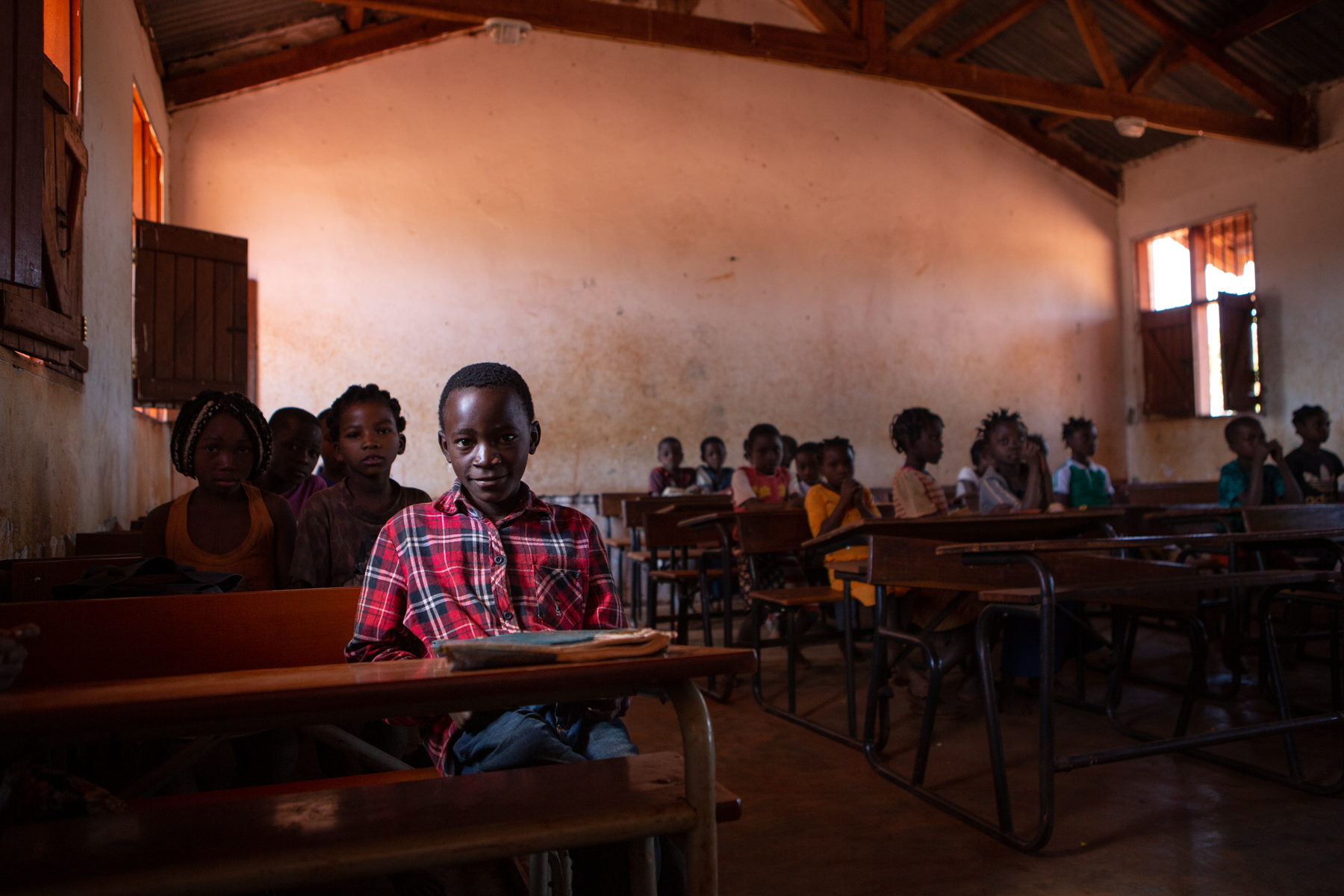
Not far from Muamini's home there's a sort of main street, a gravel street like all the other ones in M'Paca, that nonetheless is the beating heart of the village simple economic life. Along this road, it's easy to run into children selling plastic bottles filled with yellow diesel fuel. A boy is handling a circular saw: through an improvised electrical panel, he has set up his workshop, where he takes apart old bicycles and motorcycles to give each piece a new life. Some become coal stoves, others improvised metal fencing. Screams can be heard, coming from a person who gesticulates animatedly showing a pair of used jeans: the clothes auction is taking place - in an amused atmosphere, where the people of the village gather almost as if watching a theater performance. Just before the auction is Zainabo Saide's store, where a fridge was installed months ago. "I am grateful to the Ilumina project because thanks to it I can establish myself in this community as a shopkeeper. Through the project, I got a fridge that I can use to increase sales of products such as fish, ice cream, popsicles and other fresh items. I am so grateful to you, for the initiative you have taken in this village." In addition to the distribution of fresh products, Zanaibo has also started selling light bulbs and small electrical spare parts such as sockets, adapters and cables.
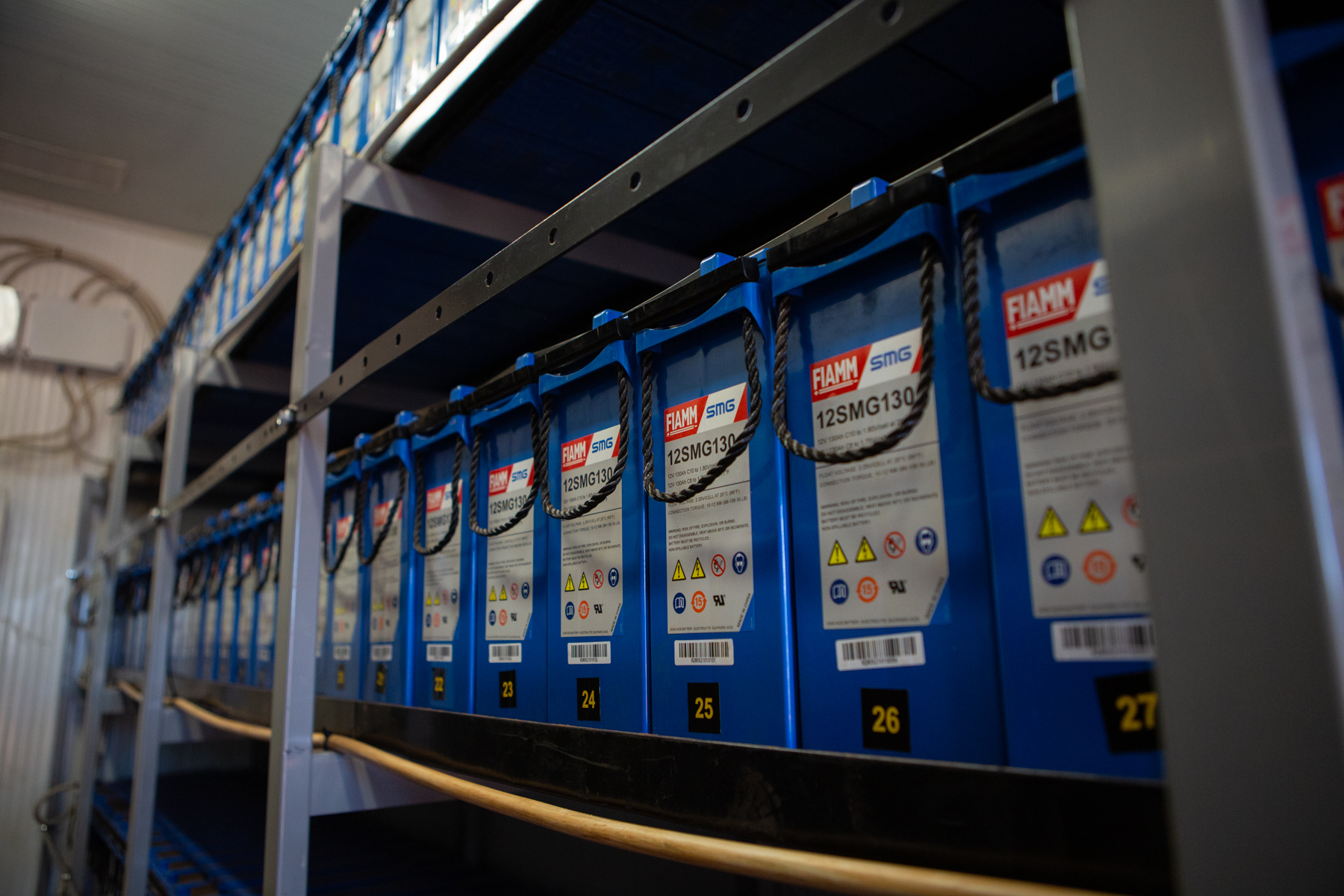
Why it's important to bring clean energy to the countryside
With an average consumption of 200-250 watts per household, the mini-grid photovoltaic system is also capable of providing energy access to new households in the near future, creating a real service network connected to them. Before long, the first well equipped with an electric pump will be operational, and women will no longer be forced to struggle with the manually triggered pumps. The activities carried out by AVSI, such as the Ilumina project here in M'Paca, are part of a series of initiatives that, by focusing on rural areas like this one in Mozambique, succeed in having a significant impact on the population and the culture related to the value of women. They aim at making it so they are not only seen as mothers, but also as carriers of economy, prompters of new ideas and overall a source of inspiration and initiative for the whole community. To understand the impact of the spread of electricity in rural Mozambique is to understand how much these small communities can offer to the overall development of the nation's future.
